61. Irreversible
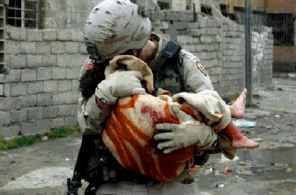
A whole slew of politically charged films have been released the last two or three years or so, a sign of the times no doubt. Some, like the remake of the 60's thriller The Manchurian Candidate and the documentary Enron: The Smartest Guys in the Room explored the notion of Corporate America as a vile entity with tentacles that reached into the very heart of the White House itself. Others, like Good Night, and Good Luck. offered a more introspective look into the time-held ideals of liberty and justice, and the ever-present threats to maintaining them, be it from external or internal forces (it also gives a hint of the rising influence of big business in television, foreshadowing the current state of the news media as it is now).
The common theme these films share is the idea that government, in all it's means and form, is not to be trusted. There is a warning here not to be idle, to guard against the bubble of complacency created by consumerism and the mass media, and look beyond what we're fed by those in power and those with vested interests. Most importantly, to not forget and ignore the key issues at hand.
Two films in particular, stand out.
The first film is Stephen Gaghan's politically charged thriller Syriana. Based on the memoirs of former CIA agent Stephen Bauer, the film is an intricately woven tale of oil companies, terrorists, spies and the unseen mechanism that fuels America's never ceasing quest to protect it's oil interests in the Gulf, at any cost. Stephen Gaghan coincidentally won an Oscar for his screenplay for Steven Soderbergh's Traffic, and this film very much follows a similar narrative and style. Tightly woven and extremely convulted, Syriana is nonetheless a compelling look into the inside world of politics and covert operations, and how the two serve each other.
The second film is the documentary Why We Fight. A deliberate and thoughtful look into the politics of war, it is a refreshing change of pace from Moore's frantic and, quite honestly, immature leftwing rant, Fahrenheit 911. Why We Fight mainly examines the close ties between big business (mainly the arms industry) and American foreign policy, and the answers are pretty disturbing.
Needless to say, by both films' chilling conclusions, we are forced to face with the hopelessly bleak future we have created for ourselves, and the implications of that future are extremely unsettling. It is a future born of accepting that we are willing to pay the ultimate price to consolidate our economic security.
And this brings me to Grave of the Fireflies, a film that reminds us of the costs we've paid, and that we'll continue to pay so long as we're willing to pay it.
THE GRAVE OF THE FIREFLIES

Grave of the Fireflies is a small film by any standards, focused solely on two protaganists, a boy and his little sister as they make their way through the wasteland of a countryside decimated by war. There isn't much of a plot to speak of, and the film's pacing is idyllic and at times, seemingly aimless. Dialogue is kept to a minimal, and when spoken, is mostly innocuous, with nothing profound shared nor learnt. It is also in the genre known mistakenly as anime, which is Japanese animation to you and me (quite why this particular genre is called anime when it is the French word for animation is anyone's guess, the Japanese themselves refer to it simply is animation). Most importanly though, it is a profoundly moving and important film, one that at once celebrates humanity in the face tragedy, and let's us, the viewer, come to terms with our own mortality. It is a presumptuous notion truly, but this film is one of the few that may indeed change our outlook on life and how we live it.
Mention the word anime and images of flying samurais and giant robots come to mind. And one would be mostly right to stereotype the genre as nothing but mindless entertainment with an abundance of graitutous sex and violence, supported by nonsensical plots that are nothing but an elaborate excuse to showcase all the above excesses.
But it is easy to forget that some of the most important animated films to come out during the 20th and 21st century have originated from Japan (Akira, Barefoot Gen, Princess Mononoke and Spirited Away spring to mind). And most have been by the master storytellers at Studio Ghibli.
Unknown mostly outside of it's native Japan, Grave of the Fireflies may be the pinnacle of Japanese animation. Tenderly crafted by the geniuses at Studio Ghibli, it represents not only the best animated film ever made, but quite possibly, as in this writer's mind, the greatest film ever made.
For those who will simple not watch a film for the mere fact that it is animated or in a medium unfamiliar to them, then they are truly missing out on a masterpiece. The realism of this film lies not in it's animation but in the emotions that the film evokes. It challenges the viewer to look beyond the images that are presented on screen and rather, to ideas that the images represent.
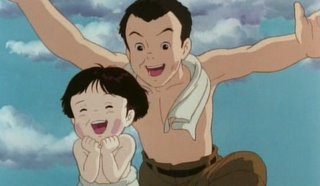 Roger Ebert, quite rightly so, has called this film is an emotional experience so powerful that it forces a rethinking of animation (you can view more on his insights on the film here). He was moved to the point of tears after viewing the film. A quick check on the net shows that many share the sentiment (read Amazon reviews here and IMDB reviews here).
Roger Ebert, quite rightly so, has called this film is an emotional experience so powerful that it forces a rethinking of animation (you can view more on his insights on the film here). He was moved to the point of tears after viewing the film. A quick check on the net shows that many share the sentiment (read Amazon reviews here and IMDB reviews here).
Some may mistake this film as an anti-war film, especially with since it's set during the Second World War and tells a tale of two children orphaned by it. It is not anti-war, it is pro-life. It shows us what it means to live, and what it means to have hope and love. It also shows us how delicate life is, and the devastating effects of us losing our humanity.
There is something familiar about the film, something that we can relate to. It is because we know that the events depicted in this film could be happening this very minute. Forget that the characters are Japanese, but perhaps an Iraqi, or a Somalian, or maybe even somebody closer to home. It is a disquieting thought, but one that is too important to ignore.
Perhaps we should all really think of the consequences of our decisions, on why we fight and what we believe in. We can justifiably say that the Allies fought in the Second World War to overthrow an evil regime bent on exterminating a race of people. Yet, the Americans systematically fire-bombed Japan, purposely targeting the civilian population to terrorise them into submission. The bombings caused the deaths of 100,000 civilians, and Robert McNamara himself has admitted that if the US would have lost the world, he and General Cutris LeMay (who had planned the fire-bombing) would have been tried as a war criminal. After of which, they dropped two atomic bombs on a crippled nation.
It is easy to forget the human toll behind the numbers. The millions of lives lost during the countless wars fought. And more to be lost in the wars to come. We must never forget, for to forget is to compromise our own humanity, and if we lose our humanity, then we are truly lost.
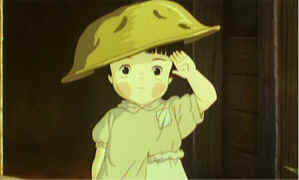 We are but the offspring of our thought. Yet in deed, we repeat the same mistakes over and over. This is the human condition. And it is irreversible.
We are but the offspring of our thought. Yet in deed, we repeat the same mistakes over and over. This is the human condition. And it is irreversible.
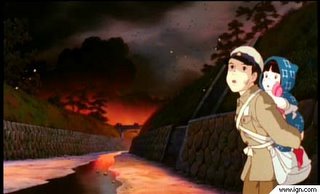


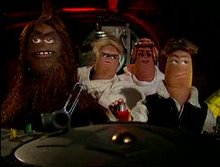
No comments:
Post a Comment